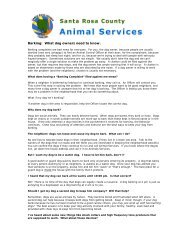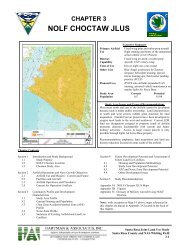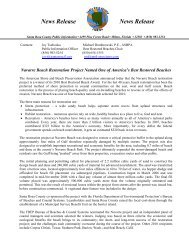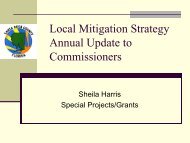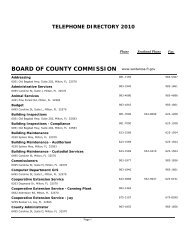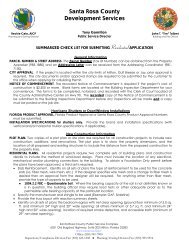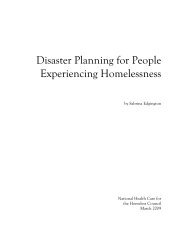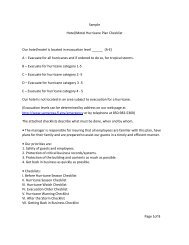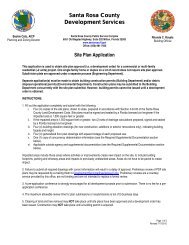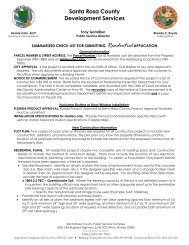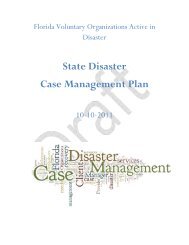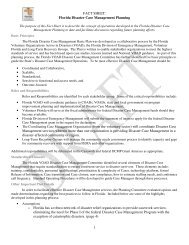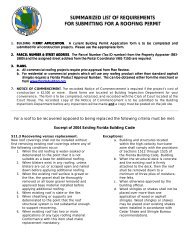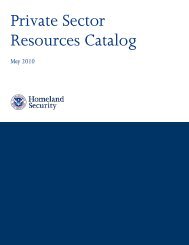Disaster - Santa Rosa County
Disaster - Santa Rosa County
Disaster - Santa Rosa County
You also want an ePaper? Increase the reach of your titles
YUMPU automatically turns print PDFs into web optimized ePapers that Google loves.
HAZMAT Incidents & You<br />
38<br />
HAZMAT Decontamination<br />
Area set up as a Response to<br />
Possible Chemical Threat<br />
Chemicals are found everywhere. They purify<br />
drinking water, increase crop production, and<br />
simplify household chores. But chemicals also can<br />
be hazardous to humans or the environment if used<br />
or released improperly. Hazards can occur during<br />
production, storage, transportation, use or disposal.<br />
Hazmat<br />
Whether it be an accidental chemical release or an<br />
intentional attack, be prepared by knowing what to<br />
do before, during and after a chemical/hazardous<br />
materials incident that affects your area. Your<br />
local emergency management office is equipped with an<br />
automated phone system that will be used to notify you<br />
and provide instructions for these types of incidents. If<br />
you witness a chemical/hazardous incident, call 9-1-1 as<br />
soon as possible.<br />
What to do before chemical disasters<br />
• Know what your threats are in the community.<br />
99<br />
Contact your Local Emergency Planning Council, the West Florida<br />
Regional Planning Council at (850) 332-7976<br />
99<br />
Contact your local Emergency Management Office.<br />
What to do during chemical disasters<br />
• Know your evacuation routes and evacuate if told to do so.<br />
• Shelter in place if told to do so (see page 37 for directions).<br />
• Keep your disaster kit with you in your safe room.<br />
• Listen to local radio or television stations for detailed information and<br />
instructions.<br />
• Remember that some toxic chemicals are odorless.<br />
If you Receive a Bomb Threat<br />
33<br />
Get as much information from the<br />
caller as possible.<br />
33<br />
Keep the caller on the line and<br />
What to do after chemical disasters<br />
document everything that is said.<br />
33<br />
Notify law enforcement and<br />
• Return home or go outside only when told it is safe to do so by local<br />
authorities.<br />
building management.<br />
• Open windows and vents and turn on fans to provide ventilation.<br />
• Follow decontamination instructions from local authorities.<br />
• Seek medical treatment for symptoms related to hazardous materials.<br />
• If medical assistance is not immediately available and you are contaminated, remove your clothes and place in a plastic bag<br />
or sealed container and dispose of as told to by local authorities, take a shower and put on clean clothes.<br />
• Remember that eyeglasses, contacts and hearing aides may be contaminated and must be cleaned properly or disposed of.<br />
• Seek information from local authorities on how to clean your property.<br />
• Continue to monitor your television and radio for current information.<br />
Over-turned tanker on Avalon Boulevard



